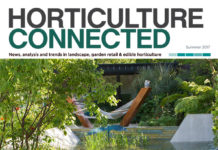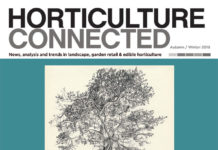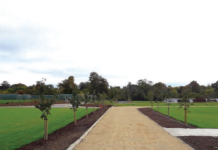Independent consultant and Horticulture Industry Forum coordinator, Stiofán Nutty, explains how producer organisations are fostering collaboration and how Storm Emma may have at least one silver lining
Since the Horticulture Industry vision report was adopted by the HIF at the end of 2017, work has commenced on all four strands identified in the report, i.e. greater grower collaboration, securing the required resources, exploiting market opportunities and advancing public policy initiatives to tackle below-cost selling, labour shortages etc. Leaders were appointed for the management of each of the four strands and good progress has already been made.
As part of the greater grower collaboration strand, a DAFM pilot programme has been developed to demonstrate to producers how a producer organisation (PO) can benefit and
support their businesses. The programme was announced by the Minister for Horticulture Andrew Doyle TD on 6 February at an information meeting held in Backweston, Co Kildare. A number of DAFM speakers presented on topics, where new improvements are likely to make it increasingly attractive for producers to join a PO. These included the new national strategy for operational programmes in the fruit and vegetable sector 2017 – 2022 and a briefing on the updated operation of the PO scheme. The final formal presentation was made by grower Paul Brophy. Paul informed the meeting that he was working with other growers and that this group was planning to join a new PO. Paul outlined the potential
benefits to his business of being in a PO and he explained why he was choosing to join a PO now. The meeting then broke up into a number of workshop sessions where participants
discussed the positive and negative practicalities of joining a PO. The information meeting ended with a presentation and discussion of the conclusions from each of the workshops.
Further information sessions are planned in the coming weeks where participants will be afforded an opportunity to explore in detail all aspects related to joining a PO. In addition, participants will get to meet representatives of the two POs that currently operate in Ireland. This “suck it and see” approach allows producers experience what it is like to
operate within a PO without having to commit fully to joining one. Producers are free to leave the process but it is expected that, in time, many will choose to fully commit to a PO.
POs have the potential to reduce input costs for producers and deliver more effective distribution and marketing of produce. This also means that producers have more time to
concentrate on growing. The programme will continue to run over the coming months.
If you would like to learn more about POs and/or about the current PO pilot programme please contact the DAFM horticulture section on 01 505 8600. Work is progressing on the securing the required resources strand of the vision report, which focuses on improving the supply of education and training to the industry, and on better-resourced R&D and exploiting market opportunities (including industry collaboration with health practitioners to promote the consumption of fruit and vegetables to boost public health and to promote the role of plants, flowers and trees to improve mental health). Updates will be provided to the next full forum meeting later in the spring.
The public policy strand has been very active with a particular focus on the mounting crisis in the labour supply market. The strand is led by the IFA and a detailed submission was compiled outlining the strong case for horticulture to be made an eligible category that would enable the industry to apply for a work permit programme for non-EU nationals. HIF and the IFA participated in a forum on labour migration hosted by ESRI on 26 February and have been working closely with Teagasc, Bord Bia and DAFM to build the case for a non-EU permit programme.
It had been just four months since Storm Ophelia caused major damage to many fresh produce and amenity growers. The latest bout of bitter winds and heavy snowfall has caused heart-breaking structural and crop damage, particularly in the southeast and east. One silver lining of Storm Emma for our industry was the images of bare food shelves in
the supermarkets, highlighting the precarious nature of Ireland’s food supply chain and underlining why Ireland needs indigenous producers of food. The country needs to foster a
vibrant more prosperous horticulture industry in Ireland and we must all work together to bring this about. ✽
  |








